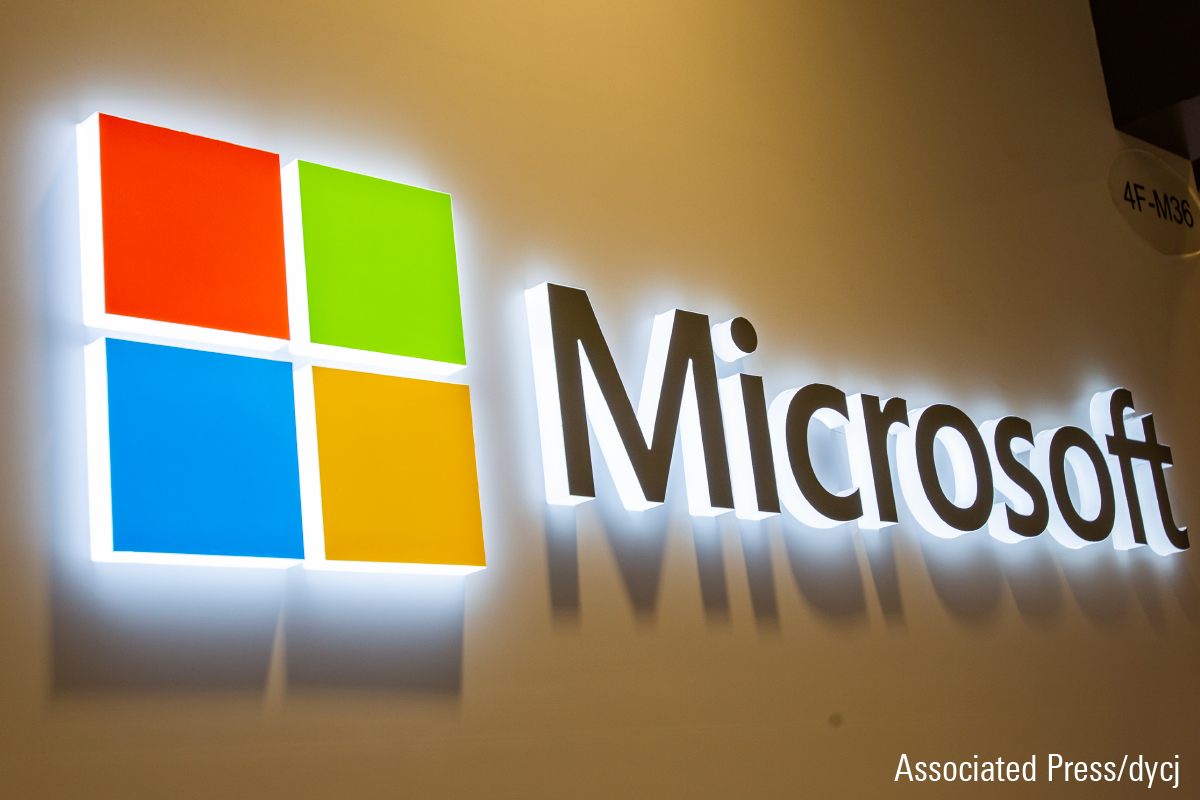
Even as Microsoft MSFT offered a cautionary picture on its key cloud business and overall revenue with its latest quarterly earnings results, the software giant continued to post solid results.
The tech giant noted that customers are wary in the current uncertain economic environment and are focused on optimizing their spending. That’s serving to put a cap on key growth businesses, especially Azure, Microsoft’s cloud computing platform.
“Bulls can highlight Microsoft’s good growth in remaining performance obligation and Azure, while bears can point to decelerating revenue growth and light guidance,” writes Dan Romanoff, senior equity analyst at Morningstar.
“We see results as reinforcing our long-term thesis centering on the proliferation of hybrid cloud environments and Azure, as the firm continues to use its on-premises dominance to allow clients to move to the cloud at their own pace,” Romanoff says.
Still, given the company’s outlook, Romanoff lowered his fair value estimate on Microsoft stock to $310 from $320 per share. With the stock trading around $240, Microsoft is undervalued, with a 4-star rating. “We … continue to view shares as attractive,” he writes.
Microsoft Key Earnings Takeaways
- Revenue: $52.75 billion versus Factset’s mean estimates of $52.97 billion.
- Earnings per share: $2.32 versus mean estimates of $2.29.
- Weakness in Windows, advertising, and gaming, which performed worse than expected, and is likely to continue to decelerate and face more pressure than Microsoft’s enterprise software businesses.
- Third-quarter revenue guidance was lower than expected, between $50.50 billion and $51.50 billion, versus the consensus of $52.51 billion.
- Microsoft expands into artificial intelligence, reportedly investing $10 billion for a 49% stake in OpenAI, potentially a new avenue of growth over the long term.
Microsoft reported revenue of about $52.75 billion for its fiscal 2023 second quarter, which aligned with the midpoint of the company’s guidance of $52.85 billion. Revenue was down 2% from a year ago.
While results were solid, driven by better-than-expected growth in Azure, Microsoft’s cloud computing platform, key concerns remain over revenue in the near term.
Currency Headwinds Continue for Software Stocks
Currency remains a major headwind, as the company reports that the decline in revenue would have been about 7% under constant currency, a 5-percentage-point difference. Currency has broadly been a major concern for software companies. “While a strengthening U.S. dollar is common in times of global macroeconomic turmoil, this is among the worst currency situations we have encountered in the last 25 years,” Romanoff writes.
U.S. software companies under Morningstar analyst coverage have 43% of their revenue coming from outside the country on average. As of June 30, 2022, Microsoft sources about 49.5% of its revenue from outside the U.S. according to PitchBook Data. Management expects a currency headwind of about 300 basis points for the quarter ending in March.
Microsoft Sees Growth Deceleration Across the Board
Microsoft’s Intelligent Cloud segment revenue was up 18% overall, which was driven by growth in Azure, the company’s cloud computing platform, which grew 31% from a year earlier, or 38% on a constant currency basis.
“We were pleased with strong year-over-year growth (in constant currency) in Azure of 38% and Dynamics 365 of 29%, as both are key pillars to our long-term growth estimates,” Romanoff writes.
Growth in Azure, a key pillar of Romanoff’s Microsoft thesis, decelerated from the previous quarter, when it increased 35%, or 42% on a constant currency basis.
Chief executive officer Satya Nadella pointed to companies pivoting away from the acceleration seen during the coronavirus pandemic in adopting cloud technologies. “The thing that customers are doing is what they accelerated during the pandemic, they’re making sure that they’re getting [the] most value out of it or optimizing it,” he said during the company’s conference call with stock analysts. “And then, also being a bit more cautious … given the macroeconomic headwinds out there in the market.”
Microsoft has also shifted to focus on helping customers achieve their goals in optimizing spending on Microsoft services, a move that Nadella said should help retain customer loyalty and reinvigorate spending once macroeconomic pressures abate.
“This is an important time for Microsoft to work with our customers, helping them realize more value from their tech spend and building long-term loyalty and share position, while internally aligning our own cost structure with our revenue growth,” he said.
Weakness in Windows, Devices, and Gaming
The weakest link in Microsoft’s results were its Windows, devices, and gaming businesses, which saw significant year-over-year declines that Romanoff says were “worse than anticipated.” Windows software sales and devices both fell about 39%. Xbox content and services declined 12%.
“Weakness in consumer-related revenue from Windows, advertising, and gaming is remaining more pressured than enterprise software in the near term,” he says. Romanoff believes that most of the recently announced layoffs will likely be focused on these areas.
When it comes to the outlook, “we continue to center our growth assumptions around Azure, Office E5 migration, and traction with the Power platform for long-term value creation. That said, we continue to believe that results will remain subdued for the next several quarters,” Romanoff writes.
Microsoft Stock Key Takeaways
- Sector: Technology
- Industry: Software—Infrastructure
- Fair Value Estimate: $310
- Morningstar Rating: 4 Stars
- Economic Moat Rating: Wide
- Moat Trend: Stable
Microsoft Steps Up Artificial Intelligence Push
In a recent post on the company’s blog, Microsoft revealed that it was strengthening its partnership with OpenAI, the creator of popular artificial intelligence software ChatGPT. Azure is now the exclusive cloud provider for the technology. The company also now reportedly owns an approximately 49% stake in OpenAI following a $10 billion investment, which Romanoff says, “immediately renders Microsoft a leader in AI.”
“We view immediate monetization opportunities as limited but believe they will become more material over time as customers become more comfortable with AI usage and interaction, and use cases proliferate. We see Microsoft’s solutions as ultimately more compelling with advanced AI capabilities, which we think drives further adoption and perhaps both higher prices and entirely new solutions,” he says.








.jpg)











